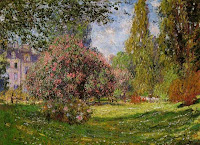 I love thee, as I love the calm
I love thee, as I love the calmOf sweet, star-lighted hours!
I love thee, as I love the balm
Of early jes'mine flow'rs.
I love thee, as I love the last
Rich smile of fading day,
Which lingereth, like the look we cast,
On rapture pass'd away.
I love thee as I love the tone
Of some soft-breathing flute
Whose soul is wak'd for me alone,
When all beside is mute.
I love thee as I love the first
Young violet of the spring;
Or the pale lily, April-nurs'd,
To scented blossoming.
I love thee, as I love the full,
Clear gushings of the song,
Which lonely—sad—and beautiful—
At night-fall floats along,
Pour'd by the bul-bul forth to greet
The hours of rest and dew;
When melody and moonlight meet
To blend their charm, and hue.
I love thee, as the glad bird loves
The freedom of its wing,
On which delightedly it moves
In wildest wandering.
I love thee as I love the swell,
And hush, of some low strain,
Which bringeth, by its gentle spell,
The past to life again.
Such is the feeling which from thee
Nought earthly can allure:
'Tis ever link'd to all I see
Of gifted—high—and pure!
~Eliza Acton
(Painting by Claude Monet from this source)
No comments:
Post a Comment
Leave a thought of your own.